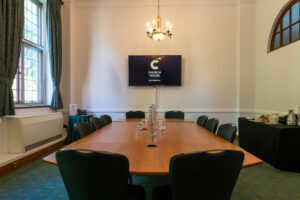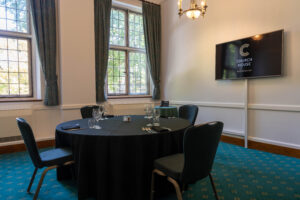
Hybrid working and the events industry: why hybrid working…works
From a concept little known or thought about a few years ago, to a concept that is in the forefront of the collective workplace consciousness today, hybrid working has become a phenomena in recent years, and is perhaps the biggest change any of us have experienced in our working lifetimes.
A flexible working arrangement in which the week is divided between the workplace and a remote location such as home, a co-working space or a café, hybrid working is now a style of employment which 87 per cent of event professionals engage in.
More broadly, just 30 per cent of UK companies today require their employees to work onsite full-time and, by the end of 2023, it was predicted that almost 40 per cent of workers globally would adopt a hybrid arrangement.
With most UK companies stipulating between just one and three days in the office, particularly small business where 76 per cent offer complete flexibility in working models, what is it that makes hybrid working so great? And, more importantly, why do those working in the events industry seem to love it?
Making jobs work
In a fast-paced industry such as events, the increased productivity that derives from having fewer distractions when working offsite is invaluable. Hybrid working gives employees the freedom to play to their strengths, building their day around a way of working that is most effective for them and creating a physical environment that best meets their needs. This environment can be anywhere, offering employees the chance to find new stimulation and inspiration in different locations – an ideal outcome for an industry that thrives on creativity.
Of course, events is an industry which also thrives on unsocial hours, so hybrid working can serve to counteract some of the impact of this, giving employees greater control over their work schedules.
Making life work
Rather than fitting life around work, hybrid working provides a greater opportunity to personalise work around life. Balancing professional and personal responsibilities is hard, sometimes impossible (or so it feels), and the stress and guilt that accompany this as you battle to be your best self in each area of your life is exhausting.
Hybrid working helps to level this playing field, gifting employees the flexibility to more easily accommodate the demands of home life; as they, for example, gain back travel time, tick chores off their to-do list or do the school run. This creates a more engaged, empowered and happier workforce, and could also have the added benefit of better addressing client needs. For example, flexibility in the 9-5 could more easily support international clients in a variety of time zones. Extra time also means extra opportunities for wellbeing and, however employees choose to recharge their batteries, in such a high-pressure industry as events, it is a benefit that cannot be overlooked lightly.
Making ideas work
Hybrid working removes a myriad of restrictions, but one of the biggest is the restriction it removes on recruitment. Without the restraint of location, employers have access to a much wider pool of talent, making it possible to recruit people with inspiring and innovative ideas who may otherwise have been unable to apply for a fully office-based role. This much-needed uplift in diversity and inclusivity is something which only makes our industry stronger as we utilise knowledge, experience and insights from across the country (and further afield) to bring our clients the very best ideas and services.
Making priorities work
In joining together the home and the office, employees can relish the best of both worlds. When working offsite they gain convenience, not to mention a reduction in costs for essentials such as petrol and lunch. When working onsite they strengthen the social bonds with both clients and colleagues which are vital in such a customer-facing industry and a workplace that flourishes on teamwork.
Making sustainability work
In an industry where average emissions per guest are 6kg C02e and average emissions per event are 2t C02e, minimising carbon emissions from travel supports the building of a more sustainable events industry for the future. While it might not sound like much, if you consider the impact of this across every employee its effect is not insignificant. Indeed, a study by Cornell University showed that hybrid workers can lessen their carbon footprint by between 11 and 29 per cent when working from home two to four days per week. Remember, it is often the small, individual efforts that can create the biggest change collectively.
Final thoughts
As a venue that is all about its people, with values centred around care and compassion and a proactive approach to innovation, hybrid working is something we have embraced at Church House. Our team enjoy the enhanced productivity they experience from the combination of remote work with the collaboration benefits of in-person meetings. We’ve found this approach fosters work/life balance; reduces commuting stress, and enables efficient use of time and resources, ultimately improving our team’s satisfaction – allowing them to give their best to our clients!




























